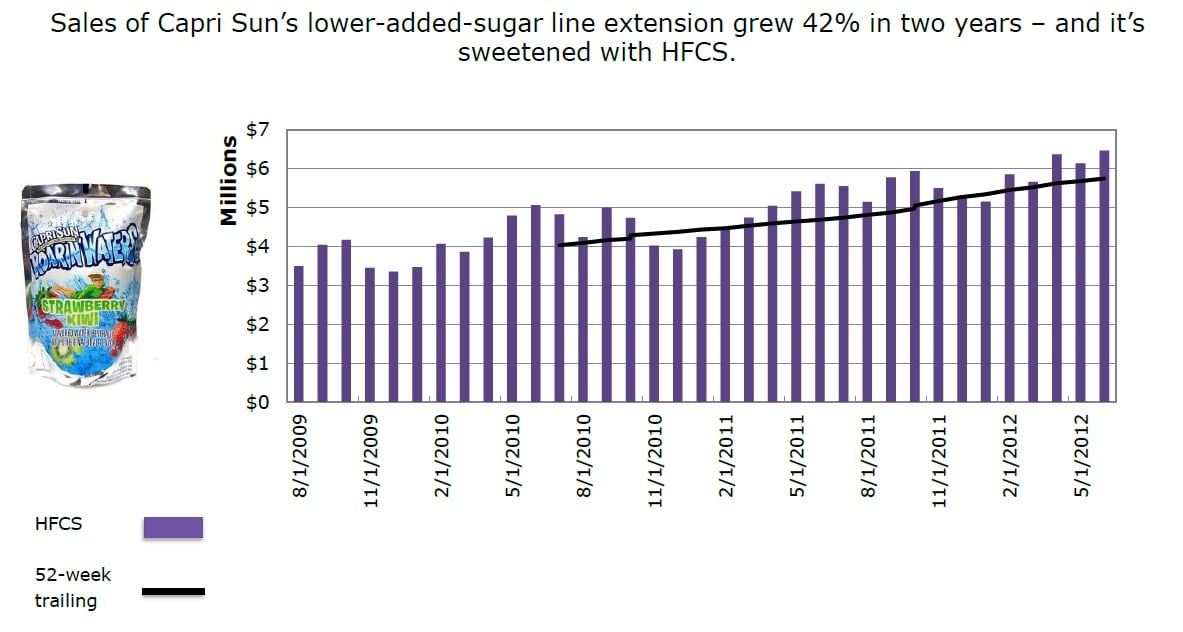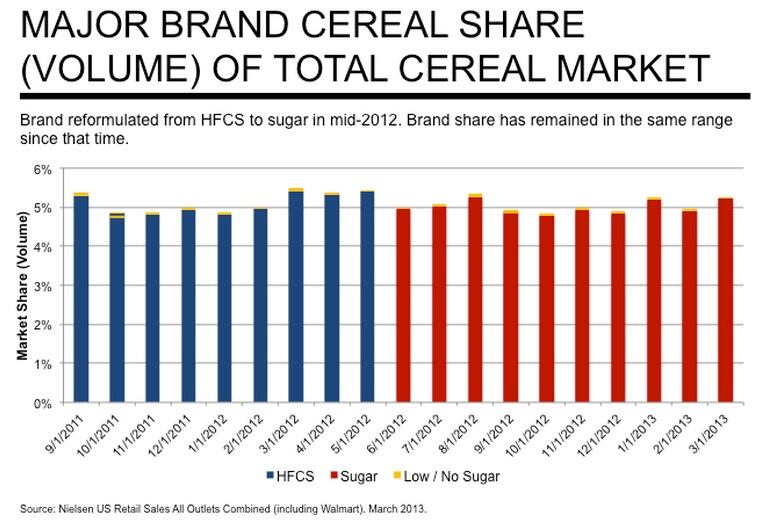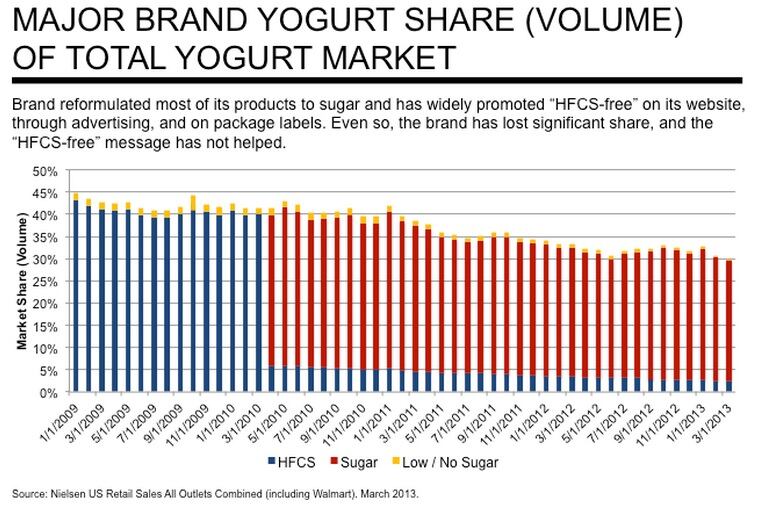According to popular culture, HFCS is bad and should be removed from foods. Indeed, it’s on the Whole Foods Market list of 'unacceptable ingredients' suppliers are instructed to avoid. Many food and beverage manufacturers have obliged, with consumers alerted to reformulation activity with ‘HFCS-free’ or ‘no HFCS’ labels.
Data from the Mintel Research Consultancy (MRC) shows that Kraft Foods led the pack on "no HFCS" introductions, with almost 10% of introductions between 2002 and 2011. The rest of the top five consisted of Bear Naked (3.10%), Safeway (2.74%), Groupe Danone (2.45%), and Grupo Bimbo (2.31%).
However, sales of such products, intended to give the people what they wanted, have not necessarily responded.
According to a survey from the MRC on sweetener usage by category and consumer segment (commissioned by the Corn Refiners Association), “A great deal of media attention has been given to sugar, soda, non-caloric sweeteners, and high fructose corn syrup (HFCS) in 2011-12.
“In some cases, the publicity vilified HFCS, but as of late, more of the focus is on added sugars overall than on any specific type of sweetener.”
Indeed, a survey from the International Food Information Council (IFIC) found that the majority of Americans (70 and 63%) are trying to consume less of both sugar and HFCS, respectively.
“Consumers care about added sugar among a lot of other ingredient and food considerations,” said Sara Martens, Vice President at The MSR Group, which has performed market research for a number of food retailers, manufacturers and the CRA.
“Fat, salt and sugar are typically at the top of the consumer concerns list, while HFCS is typically near the bottom.
“Looking at research conducted 2008 through the present, we consistently see the percentage of consumers saying they avoid HFCS at five percent or less, whereas the percentage of consumers expressing concern about sugars has been fluctuating between 20-28%. Similarly, when reading labels, approximately four percent look for HFCS compared to 38% looking for sugar content,” added Martens.
Not all the market data agrees, however, with a different IFIC survey conducted last year suggesting that 44% of US adults are seeking to avoid or limit HFCS intakes. Despite the higher number, this was the exactly the same percentage as in 2011.
Re-reformulations
As reported by FoodNavigator-USA last year, ConAgra switched Hunt’s ketchup back to HFCS citing consumer indifference. A spokeswoman for the company told us at the time: “Overall, consumer demand for the HFCS-free ketchup was not as strong as expected,” she said. However, ConAgra has retained a HFCS-free variant in its range.
Kraft, on the other hand, said the switch back to HFCS was due to costs*. “Sugar prices have risen at unprecedented rates in the last 12 months and are at a 30-year high. We made this change to help better manage costs for consumers in today's difficult economic environment while preserving the good taste families expect.”
[* This statement is no longer available on the kraftsbrands.com website, but is still accessible via a web archive: http://web.archive.org/web/20130403031951/http://www.kraftbrands.com/CaprisunMoms/faq.aspx#whychangeingredients]
Capri Sun’s “Roaring Waters” line, labeled as low calorie but sweetened with HFCS, has seen impressive growth over two years (42% growth), suggesting that HFCS on the label is not dissuading moms from purchasing the products for their kids, and that 'low calorie' is more important than the actual sweetener used (see figure below).

Performance data
Martin Concannon, Managing Director, Lafayette Associates, told us that data from Nielsen clearly shows that a brand’s strategy to use HFCS-free as a differentiator is not an effective strategy. “It does not increase market share,” he said.
Indeed, Nielsen provided data for two products in separate categories that indicated either a plateauing of sales (no effect from going HFCS-free) or even a decline in sales after switching to sugar (see figures below).


Headlines proclaiming ‘sugar is toxic’ have impacted on the overall consumer awareness of added sugars in general, and, according to the Mintel survey, “based on the high levels of total sugar avoidance, rather than specific ingredients such as HFCS, it appears that manufacturers would realize a stronger sales increase by reducing overall sugar content than reformulating without HFCS.
“HFCS-free formulations may make sense, but only as a line extension.”
